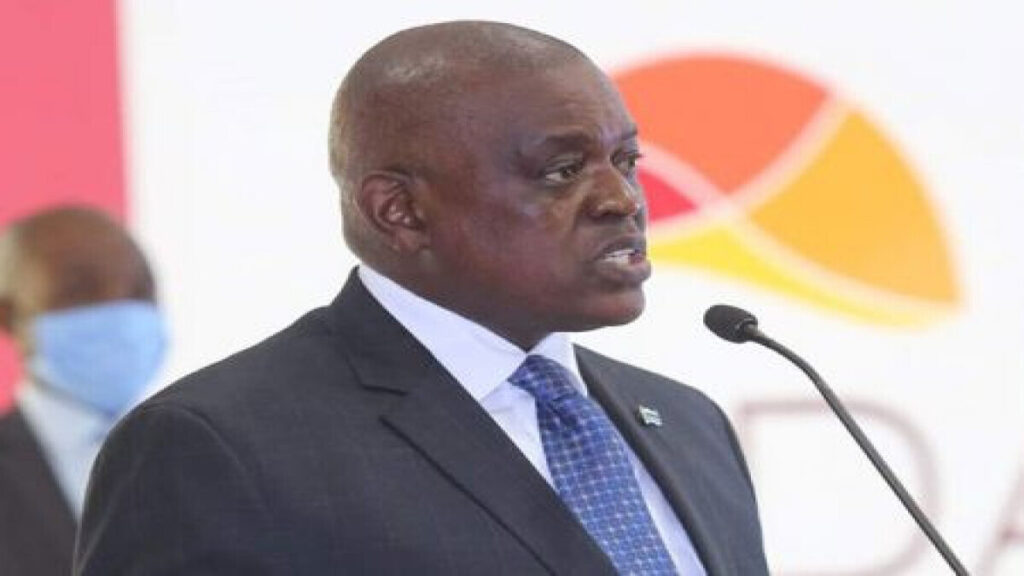
In a seismic political shift that has sent shockwaves through Africa’s longest-standing democracy, Botswana’s ruling Botswana Democratic Party (BDP) has been ousted from power after nearly six decades of uninterrupted rule, marking the end of one of the world’s longest-running democratic governments.
The opposition Umbrella for Democratic Change (UDC), helmed by charismatic attorney Duma Boko, secured a commanding victory in what observers are calling a “democratic masterclass”. With results declared from 41 of the 61 constituencies, the UDC clinched 26 seats, leaving the once-dominant BDP with a mere three seats, signalling an unprecedented political transformation in the southern African nation.
President Mokgweetsi Masisi, who becomes the first one-term president since independence, displayed remarkable statesmanship in defeat. “The voice of the people has spoken,” Masisi told journalists at State House in Gaborone. “While I wished to continue as your president, I respect the people’s choice and the president. I step aside to support the new administration.”
The electoral tsunami has been attributed to a perfect storm of economic challenges that have battered this traditionally prosperous nation. Botswana, long heralded as Africa’s “shining example” of democracy and economic management, has grappled with mounting difficulties in recent years.
“The writing was on the wall,” says Dr. Emmanuel Kwesi, senior political economist at the University of Botswana. “When you have youth unemployment hovering at 28%, and a diamond-dependent economy showing cracks, people inevitably demand change.”
The country’s heavy reliance on diamonds, which account for a staggering 70% of export earnings, has proved particularly problematic amid global market volatility. Recent data from the Botswana Diamond Trading Company reveals a 15% decline in diamond revenues over the past year, contributing to growing economic anxiety.
Healthcare emerged as a crucial battleground in the election. A recent government survey showed that 65% of citizens reported difficulties accessing basic medical services, with 40% citing medicine shortages at public facilities. “People were dying not because we lack resources, but because of mismanagement,” says Sarah Mokgadi, a prominent healthcare activist in Gaborone.
The opposition’s victory appears to have been sealed by its promise of economic diversification and job creation. The UDC’s manifesto, dubbed “The People’s Contract,” pledged to reduce diamond dependency to 40% of exports within five years and create 100,000 new jobs through investments in technology and agriculture.
Regional implications of this political earthquake are significant. Following the African National Congress’s loss of its parliamentary majority in South Africa earlier this year, political analysts suggest a new era of multi-party democracy might be dawning in southern Africa.
“This is a watershed moment for African democracy,” says Professor James Morton of the London School of Economics. “It demonstrates that even the most entrenched political parties can be peacefully removed through the ballot box.”
The incoming administration faces formidable challenges. The UDC inherits an economy growing at just 3.2%, down from the 5% average maintained throughout much of BDP’s tenure. Youth unemployment, at 28%, remains a pressing concern, with 60% of jobless citizens being under 35.
President-elect Duma Boko will need to navigate these challenges while maintaining Botswana’s crucial relationships with diamond giant De Beers and other international partners. “We are ready to write the next chapter in Botswana’s story,” Boko declared in his victory speech. “Our mandate is clear: deliver prosperity that reaches every household.”
The peaceful transition of power, rare in many parts of Africa, has drawn praise from international observers. The European Union’s election monitoring team described the process as “transparent, fair, and exemplary,” while the African Union lauded it as a “triumph of democratic principles.”
As Botswana enters this new era, the world watches to see if this stable nation can maintain its reputation for good governance while charting a fresh economic course under new leadershi



















